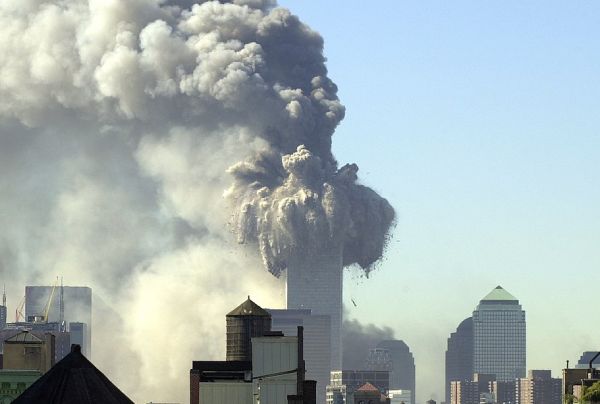“If what you are saying is true, I don’t want to know!” exclaimed a young male visitor at our 9/11 Truth booth at the Denver People’s Fair. He was referring to the evidence of controlled demolition of the three World Trade Center (WTC) skyscrapers on September 11, 2001.
“Why?” I asked.
“Because if what you are saying is true, I would become very negative. Psychologically, I would go downhill.”
With gratitude, I responded, “Thank you!”
Surprised, he asked, “Why are you thanking me?”
“Because it’s rare to hear such raw truth. Thank you for being so honest.”
Softened by our exchange, the young man chatted with me a while longer before taking his leave. I have never forgotten him; he has likely never forgotten me. We both felt it. Paradoxically, deep truth had been shared.
We who work to educate the public about 9/11 — and about false flag operations,2 — are puzzled by the often forceful resistance from our listeners. Yet, many of us in the 9/11 Truth Movement also once vigorously resisted this challenging evidence. We have our own stories to document this.
What drives these antagonistic reactions?
Read the complete series:
-
Part 1: Preface and Introduction
Our human tendencies toward denial in order to avoid the discomfort of cognitive dissonance. -
Part 2: Diffusion of Innovations
How new ideas become accepted in societies. -
Part 3: Obeying and Believing Authority
The authority experiments of Stanley Milgram, Jane Elliott, and Philip Zimbardo. -
Part 4: Doublethink
The concept “doublethink,” developed by George Orwell. -
Part 5: Denial and Cognitive Dissonance
The defensive mechanisms of denial and cognitive dissonance. -
Part 6: Conformity and the Spiral of Silence
The Solomon Asch experiments on conformity and Elizabeth Noelle-Neumann’s “spiral of silence" theory. -
Part 7: Groupthink
An especially maladaptive form of conformity called "groupthink." -
Part 8: Brain Research — Structure and Beliefs
How beliefs — and our tendency to hold onto beliefs — are encoded in our DNA and our central nervous system. -
Part 9: Brain Research — Moral Psychology
The interface of brain research and moral psychology. -
Parts 10 & 11: Terror Management Theory & Systems Justification Theory
How the fear of our own death and the need to feel good about the cultural system in which we live create resistance to the evidence presented by 9/11 skeptics. -
Part 12: Signal Detection Theory
How people perceive information amid external and internal distractions. -
Part 13: Prior Knowledge of State Crimes Against Democracy and Deep Politics
How our prior knowledge of state crimes against democracy and of the deep state affects our reception of 9/11 evidence. -
Part 14: Learned Helplessness
A conditioned response to trauma or adversity that involves ongoing pain and actual or perceived lack of control. -
Part 15: The Abuse Syndrome
The “nothing we can do about it” reaction may be a result of toxic early relationships — which cause feelings of powerlessness, shame, or apathy in adulthood. -
Part 16: Dissociation
Repressed traumas can be activated by challenging 9/11 information, causing some individuals to dissociate once again. -
Part 17: The False Self and Excessive Identification with the U.S.A.
How extreme attachment to the image of one’s country is a consequence of having never developed a healthy ego or sense of self. -
Part 18: American Exceptionalism and Nationalist Faith
Why those who are privileged tend to be hesitant to accept the evidence. -
Part 19: Government Manipulation and the Big Lie
Projection, scapegoating, and the conundrum of those people who suspect they are being lied to, but cling to the web of lies told to them. -
Part 20: Those Who Lack Conscience and Empathy
As many as 4% of Americans are true psychopaths. By definition, any psychopath is capable of participating in mass murder and expressing no remorse whatsoever. -
Part 21: The Role of the Media — Act I
In modern Western societies, if a new idea is covered in a serious way on television or in the newspaper, then, and only then, is it considered “real.” -
Part 22: The Role of the Media — Act II
We will now seek to answer the question: Was there really an “Operation Mockingbird”?





